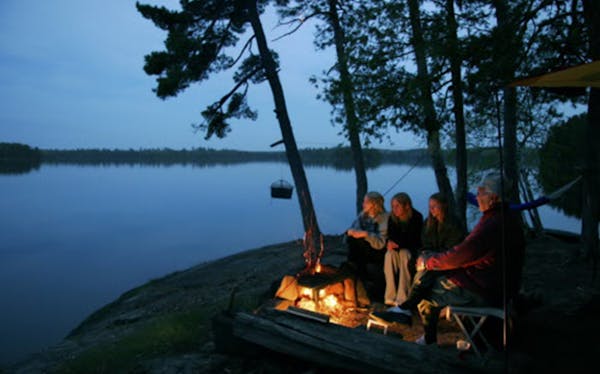TV producer Craig Wright was in a writers meeting this month when his mind drifted toward recent events in his former home of Minneapolis. As the creator of "Greenleaf," the Oprah-blessed Memphis megachurch drama that returns for its fifth and final season June 23, he knows firsthand that the arts can play a role in addressing hot-button issues, like racial inequality. But just how to weigh in is tricky business.
Wright, who launched a successful playwriting career out of the Twin Cities before moving to Los Angeles to write for "Six Feet Under," took some time last week to discuss the role that he — and Hollywood — should play in the coming months.
Q: You're working on a "Greenleaf" spinoff and another show for OWN. How might you address what's been happening through those series?
A: Obviously, a lot of shows rely on stories that are, so to speak, ripped from the headlines. I'm not sure how useful those stories are to society. More often than not, they just intensify whatever stereotypes people already have and further numb the audience to the facts. But I will say this about TV writers. Deadlines come up so fast that we're often looking for anything that can fill up a minute of time. The math dictates that sometimes you end up doing "very special episodes." But what's better is to work by misdirection in a slow and steady way.
Q: Can you give me some examples from your work?
A: "Six Feet Under" was "about" mortality and the funeral industry. But what it achieved in terms of normalizing homosexuality for audiences it achieved by never making that the story. David's sexuality was almost shocking in its plainness. Similarly, much of the positive feedback I get about "Greenleaf" is about the chance to see different kinds of very specific black lives. The show is "about" the black church, but it's really about continuing the work of normalizing affluent black characters.
Q: You made a similar statement by hiring Candis Cayne to play a transgender character in your series "Dirty Sexy Money" without making a big production about it.
A: All I did was hire a transgender person. How on Earth could you do otherwise? It ended up laying the groundwork for that to be more obviously acceptable. I think it's really simple. It's not about telling stories about specific events that have happened these past few weeks. That might make white people feel better for a little while, but it's really about putting black artists in places where they can tell the stories they want to tell. It's about broadening their access to the medium.
Q: Have you started to think of story lines influenced by recent events that you'll incorporate into future writing?
A: If I were to say this was triggering new ideas for me, then I would take myself out behind the barn and shoot myself. What's going on right now is so more profound than art and television. Before anyone starts referencing what happened to George Floyd in fiction, please, write about it in news articles and op-eds first. I shouldn't be commodifying the tragedy. This is going to need to be digested over a long period of time. Now is time for me to listen and wait.
Q: You did, however, write a play after 9/11 called "Recent Tragic Events."
A: But I would never have dared to write a play pretending to commemorate the lives of those who were lost or something profound like that. That work was about how angry I was at the media and its narration, how they were turning the tragedy into a TV show, like Katie Couric putting a camera in someone's face and asking them to tell her what it's like to dig your friend out of the rubble.
Q: What would you like to see less of?
A: At the very least, maybe we could have less shows about cops. They're good for TV writers. They have identifiable tasks, and there's this illusion of good guys and bad guys. Shows about cops are perfect for TV, but not especially good for humanity.
Neal Justin • 612-673-7431
Njustin@startribune.com Twitter: @nealjustin

The 5 best things our food writers ate this week

A Minnesota field guide to snow shovels: Which one's best?

Summer Camp Guide: Find your best ones here

Lowertown St. Paul losing another restaurant as Dark Horse announces closing

